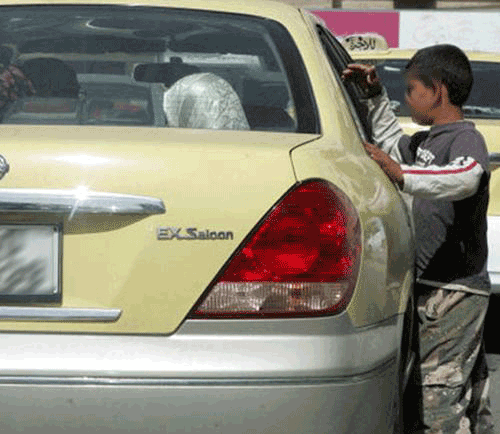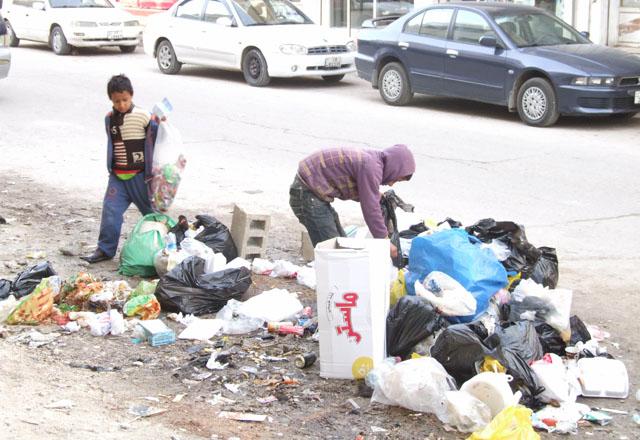You are here
JLW position paper sheds light on child labour
By Bahaa Al Deen Al Nawas - Nov 18,2020 - Last updated at Nov 18,2020
AMMAN — The Jordan Labour Watch (JLW) has warned of an increase in child labour rates due to a rise in poverty, unemployment rates and remote learning during the virus crisis.
In a statement issued on Wednesday, the JLW called for reconsidering economic and educational policies being implemented in the Kingdom throughout the coronavirus crisis.
The JLW, affiliated with the Phenix Centre for Economic and Informative Studies, issued a position paper on the occasion of Children’s Day, celebrated on November 20 every year.
In the paper, the JLW said that the number of children integrated in the labour market is “significantly increasing”, and most of these children belong to underprivileged families, whose living conditions push the children to work.
The paper said that as the coronavirus crisis has increased poverty rates, more children will likely be forced to enter the labour market, especially since the education process is still remote, not committing children to attend schools.
The statement cited recent figures that showed only 70 per cent of students use the Darsak platform for remote education regularly, whereas 30 per cent, around 440,000 children, are still unable to commit to it.
While remote education was implemented as a means to prevent the spread of the coronavirus, it also “made it easier” for underprivileged families to keep their children out of schools and have them bring more income to meet their basic needs, the statement said.
The JLW added that figures show that child labour will increase significantly due to the economic and social repercussions of the crisis, which also indicates that unemployment rates will increase significantly.
The paper said that the latest official statistics were issued in 2016, revealing that around 70,000 children are in the labour market in violation of Jordanian and international standards, and 45,000 of them work in high-risk jobs.
The inequality and disparity in social classes, in addition to the regression in social justice indicators, have all contributed to increasing child labour in Jordan, with children being physically, verbally and sexually abused, the JLW said, noting that many children who work in dangerous jobs end up with disabilities, while others “feel so much injustice, leading them to deviate and rebel against the law”.
The JLW’s position paper called for implementing laws that “prohibit child labour and imposing severe penalties against violators instead of having them pay simple fines”.
The Labour Law No. 8 for the year 1996 and its amendments prohibit employing children and juveniles, as Article 73 states that children under the age of 16 are not to be employed in any job, while Article 74 prohibits employing juveniles under the age of 18 in risky and dangerous jobs, the paper concluded.
Related Articles
AMMAN — Experts have warned that factors contributing to increased child labour have intensified in Jordan due to the coronavirus pandemic t
AMMAN — A position paper published by local NGO Tamkeen for Legal Aid and Human Rights argues that the phenomenon of child begging in
Scrap collection is a new form of child labour that poses physical, psychological and moral hazards to children in the Kingdom, a research paper released on Wednesday warned.



















